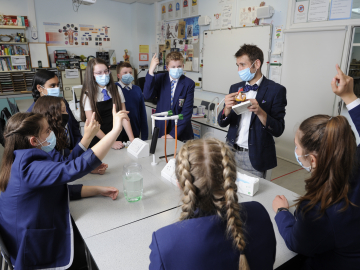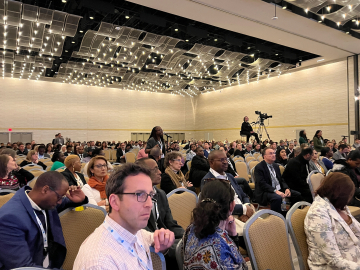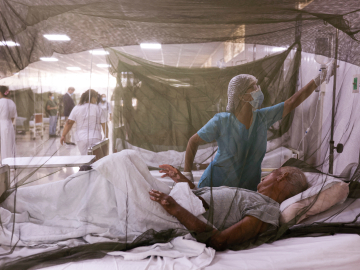AIDS and Child Welfare in Jamaica: An Extraordinary Dilemma
Jamaica faces an extraordinary dilemma: How does it prepare HIV-positive youth, originally slated for hospice care, for independent life?
The introduction of accessible and affordable antiretroviral medications through the Global Fund and Clinton HIV/AIDS Initiative in Jamaica has given rise to an unusual challenge for the nation’s child welfare system. An unprecedented number of HIV-positive orphans have exceeded their life-expectancy rates in the country and are aging out of residential care.
At the same time, transitional or adult-preparation services are limited for this population. Prior to 2003, such services were not a priority, as the pediatric AIDS fatality rate totaled over 50% and few HIV-positive youth were living long enough to graduate high school, much less transition into the community.
As accessibility to subsidized highly active antiretroviral therapy (HAART) increased the life expectancy of HIV-positive orphans in Jamaica, their needs shifted dramatically, prompting facilities to respond with a more comprehensive continuum of care. Just over a decade ago, the largest residential program in the country for HIV-positive children, Dare To Care, was providing primarily palliative care to its clients. When HAART transformed the virus from a terminal illness to a manageable chronic illness, HIV-positive orphans originally given a “death sentence” were given a chance at life. In response, Dare To Care shifted from a hospice to a home. Now, a record number are graduating from the program—and it is imperative to consider their changing needs.
Leaving residential care, youth (regardless of their HIV status) can face unemployment, homelessness, mental health issues, incarceration and academic difficulties. Adolescent orphans with HIV/AIDS can face even more challenges, including (but not limited to) intensive health care needs, adherence issues, significant disclosure concerns, and discrimination. The latter presents a particularly significant threat in Jamaica. Stigma and discrimination associated with HIV/AIDS still permeate major sectors of public and private life in the nation, and can obstruct access to proper health care, housing and employment. Ultimately, though policies exist to discourage discrimination, enforceable laws to protect individuals with the virus still do not exist.
Specialized services are needed to transition these youth into adulthood, and to ensure that they not only survive but thrive in their local communities. Overall, residential programs serving HIV-positive adolescents should include discrimination prevention and support, physical health care (including health advocacy training, personalized virus and treatment education, adherence training, and affordable medications), psychosocial support, education (including that of specialized sexual health education specific to an HIV-population), pre-employment preparation, housing, and independent living skills.
Without these services and without proper attention, we risk losing the very lives that have been saved. Survival is no longer dependent on HAART alone. A holistic approach to caring for this population is paramount as we move forward.
Prior to the introduction of life-saving antiretroviral therapy, “What do you want to be when you grow up?” was not a question posed to HIV-positive orphans within Dare To Care. Now, when asked about their dreams, residents will respond triumphantly, “I want to be a nurse, a journalist, a lawyer, a soldier, a veterinarian!” On my last visit to the residential facility, a teenage girl even proudly claimed, “I want to be prime minister.”
While we celebrate advances in HIV prevention and treatment, let us return our attention to these dreamers who still need our support. The transitional or adult-preparation needs of this special population are now critical to address. Each child’s future has stopped being merely a hope. It is now a priority for not only the residential programs that care for them, but for the countries that prepare to welcome them…prime ministers and all.
Since finishing her graduate thesis “18 with AIDS: A study into the transitional services available to HIV-positive orphans aging out of residential care in Jamaica,” Heather Anderson, M.A., has continued to serve as a public educator and independent consultant on HIV/AIDS. Anderson was led to this research because of her work with child welfare agencies in Jamaica, Swaziland and the United States, and specifically, populations that were impacted by or infected with HIV.
Join the thousands of subscribers who rely on Global Health NOW summaries and exclusive articles for the latest public health news. Sign up for our free weekday enewsletter, and please share the link with friends and colleagues: Subscribe to GHN
Dare To Care resident/Image by Heather Anderson




